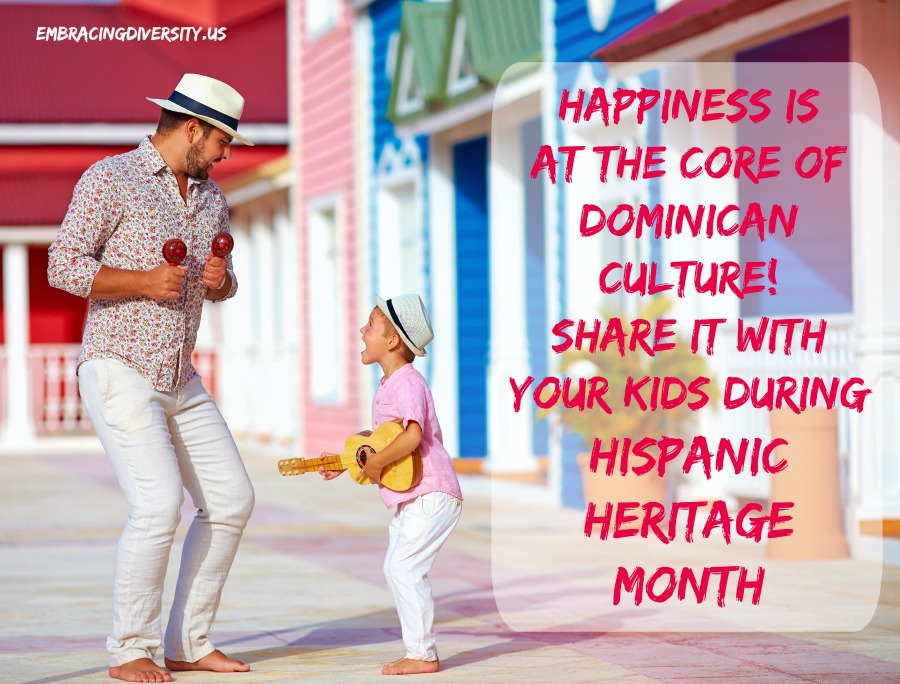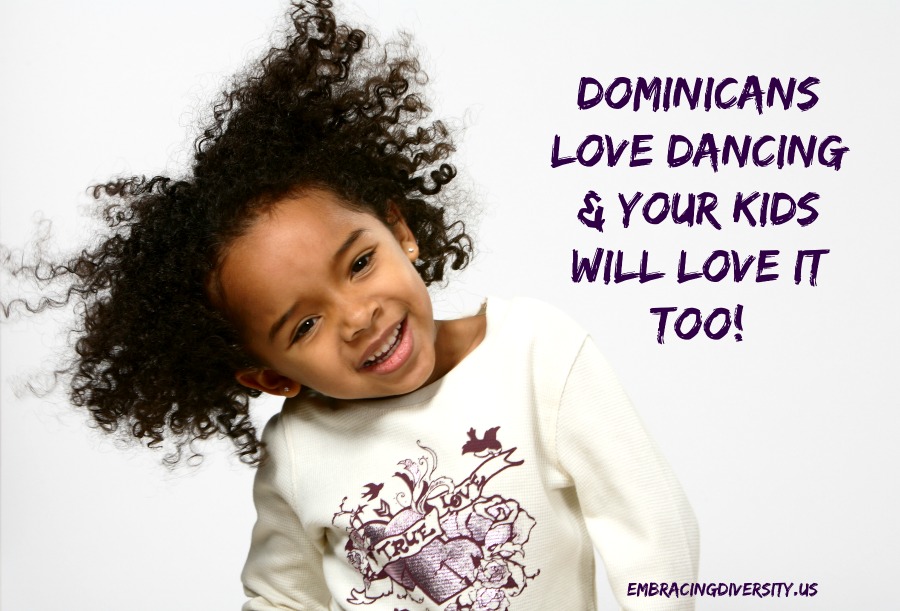
I just got back from my hometown of Santo Domingo and am now experiencing what I call the ‘withdrawal stage’ after returning to the United States from the Dominican Republic. Besides the nostalgic feeling of leaving friends and family behind, there’s also a longing for the natural joy that’s so inherent to life on the island. This got me thinking about the happiness lessons our kids can learn from Dominican culture, even if they don’t live on the island or have Dominican ancestry.
Celebrating Hispanic Heritage Month has made me reflect on the many ways I can integrate my Dominican culture into my kids’ lives to help them lead fulfilling ones. It’s not just about enriching their cultural knowledge of their heritage; it’s also about teaching them valuable lessons that extend beyond their Latino pride. Since I’m always looking for a multicultural approach to our lives, I decided to share some happiness lessons our kids can learn while we teach them about Dominican culture.
I believe that raising global citizens means living and breathing multiculturalism and making a point of teaching our children about the diverse cultures of the world. As a mom, I also understand the importance of leaving a legacy that lays the foundation for our children to lead joyful lives. As a Dominican, I know there are many happiness lessons our kids can learn from my culture. You can choose to do some as an activity to celebrate Hispanic Heritage Month, or better yet, seamlessly add them to your daily life, incorporating your own heritage twist.
Happiness Lessons Our Kids Can Learn During Hispanic Heritage Month

“Donde come uno, comen dos…”
Throughout my life, I heard my grandmother say, “Donde come uno, comen dos; y donde comen dos, comen tres” more times than I can remember. This means that with the amount of food one person is eating, two can eat; and with the amount of food two people are eating, three can eat. This is something I love about Dominican culture—we are taught at a very early age to ‘make do,’ and within this concept lies a significant lesson: be generous, no matter how little you have.
I grew up poor, but looking back on my childhood, what strikes me the most is that I was unaware of how poor we were. Anyone could tell you that the poorest people in the poorest neighborhoods of the Dominican Republic will share their meal with you, no need to call in advance. Any Dominican who grew up on the island could tell you that it’s common practice for kids to eat their piece of meat or chicken first because if a guest showed up, an adult would take the meat from the family’s plates to serve a complete meal to the unannounced guest.
This instills in children a sense of abundance and promotes generosity, which we all know fosters happiness. Among my happiest childhood memories are those visits from family members who would show up at the door and shout, “Amparo, échale agua al sancocho,” signaling my grandmother to add more water to the stew for her hungry visitors. If I close my eyes, I can almost see mamá smiling as she stirred the pot.
Dancing & The Dominican Culture of Happiness
My earliest memories of dancing merengue with a partner go back to when I was five years old. For Dominicans, the word “party” automatically means there will be merengue and bachata dancing, and for kids’ birthday parties, it’s a mandatory requirement. “El que no baila no come bizcocho” is still a common phrase at children’s celebrations, reminding them they have to ‘earn’ their piece of cake by hitting the dance floor.
Growing up in this environment pushed me out of my comfort zone and eliminated any shyness I might have experienced at any given party: dancing was a priority—because cake. As we know, dancing benefits many aspects of our health, and in turn, each of those benefits contributes to our happiness. It helps us savor small moments and provides the ability to change our moods when we’re feeling down. The best part is, you don’t have to enroll your kids in dance lessons; you can simply turn on the radio with your favorite music, grab your child, and dance together. As a Dominican parent, I do this all the time, and as my kids grow, I can see how their love of music and dancing continues to increase.
Dominicans Are Spontaneous & Fun-Driven
One of the things I miss most about being immersed in Dominican culture is the spontaneity! While life in the United States often revolves around work, productivity, and making money, one of the main goals for Dominicans is having fun, and being spontaneous helps achieve that goal—often without spending much money.
I have countless stories of starting a party on the spot for no particular reason, heading to the beach just because a few friends gathered and it was hot, or simply playing a game to pass the time. Being spontaneous makes people flexible, promotes creativity, and reduces stress. Adopting a spontaneous mindset and teaching kids to pursue fun and engage in spur-of-the-moment activities can definitely make them happier.
Leave a Reply